Here’s how many trained regular soldiers there are in each of the British Army’s regiments and corps.
The following information breaks down the strength of the British Army by Regiment. The information came to light from the response to a written parliamentary question:
John Healey, MP for Wentworth and Dearne, asked:
“To ask the Secretary of State for Defence, in each year since 2010.”
James Heappey, Parliamentary Undersecretary (Ministry of Defence), responded:
“The number of trained Regular Soldiers as at 1 April, each year from 2017 to 2021, broken down by Arm/Service, is shown in the table below. Information for years 2010 – 2016 has already been provided as part of a previous parliamentary question and can be found at the following link: https://questions-statements.parliament.uk/written-questions/detail/2016-09-15/46584”
| Arm/Service | 1 Apr 2017 | 1 Apr 2018 | 1 Apr 2019 | 1 Apr 2020 | 1 Apr 2021 |
| Total | 75,619 | 74,070 | 71,869 | 70,445 | 73,446 |
| Staff | 704 | 715 | 723 | 726 | 752 |
| Household Cavalry/Royal Armoured Corps | 4,486 | 4,399 | 4,313 | 4,241 | 4,431 |
| Royal Regiment of Artillery | 5,922 | 5,727 | 5,466 | 5,228 | 5,506 |
| Corps of Royal Engineers | 7,245 | 7,092 | 6,892 | 6,689 | 7,500 |
| Royal Corps of Signals | 5,658 | 5,739 | 5,623 | 5,433 | 5,676 |
| Infantry | 19,018 | 18,053 | 17,121 | 17,057 | 18,023 |
| Army Air Corps | 1,628 | 1,591 | 1,502 | 1,510 | 1,542 |
| Royal Army Chaplain’s Department | 131 | 126 | 118 | 117 | 120 |
| The Royal Logistic Corps | 10,448 | 10,406 | 10,140 | 9,982 | 9,941 |
| Royal Army Medical Corps | 2,950 | 3,024 | 3,008 | 3,060 | 3,095 |
| Corps of Royal Electrical and Mechanical Engineers | 7,464 | 7,309 | 7,275 | 7,012 | 7,358 |
| Adjutant Generals Corps Staff & Personnel Support | 3,223 | 3,218 | 3,107 | 2,958 | 3,033 |
| Adjutant Generals Corps Royal Military Police | 1,509 | 1,463 | 1,437 | 1,355 | 1,320 |
| Adjutant Generals Corps Military Provost Service | 175 | 178 | 165 | 149 | 141 |
| Adjutant General’s Corps Educational and Training | 274 | 275 | 285 | 280 | 302 |
| Adjutant General’s Corps Army Legal Services Branch | 99 | 99 | 88 | 89 | 91 |
| Royal Army Veterinary Corps | 354 | 353 | 341 | 337 | 350 |
| Small Arms School Corps | 147 | 146 | 143 | 142 | 142 |
| Royal Army Dental Corps | 227 | 212 | 201 | 188 | 182 |
| Intelligence Corps | 1,693 | 1,676 | 1,648 | 1,618 | 1,689 |
| Royal Army Physical Training Corps | 443 | 435 | 429 | 433 | 435 |
| Queen Alexandra’s Royal Army Nursing Corps | 871 | 880 | 913 | 927 | 949 |
| Royal Corps of Army Music | 697 | 690 | 674 | 675 | 646 |
| Senior Soldier Continuity Posts | 247 | 242 | 249 | 219 | 213 |
Notes/Caveats:
1. Figures are for the Trade Trained Regular Army only and therefore exclude Gurkhas, Full Time Reserve Service, Mobilised Reserves, Army Reserve and all other Reserves, but includes those personnel that have transferred from GURTAM to UKTAP.
2. Figures represent personnel’s Arm/Service, regardless of the Unit they are serving in.
3. At any one situation date in the above table, there are less than circa 20 people who according to the Joint Personnel Administration System (JPA), do not have a known Arm/Service attributed to them. Whilst they are included in the total, they have not been included in the breakdown.
4. All Officers of Paid Rank Colonel and above are included in Staff, regardless of previous Arm/Service.



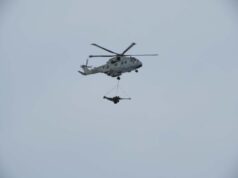

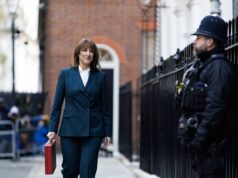
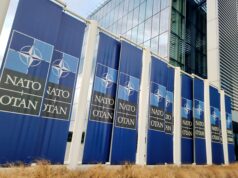
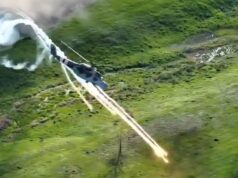
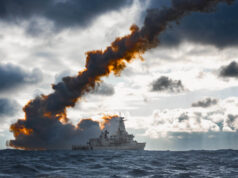
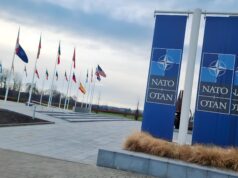

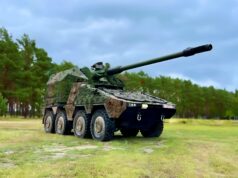

I do hate to be picky about an interesting article but there are no regiments listed in the table, they are Corps mostly. Keep the articles coming Tom.
cheers
Household Cavalry and the Royal Regiment of Artillery?
Household Cavalry is two regiments, Artillery Regiment is 13 regular regiments, five reserve regiments and a ceremonial unit.
The Royal Artillery Regiment is still a single regiment. Love it or not there are regiments listed in this.
I stand corrected
I think they have grouped all the regional Regiments under Infantry. As you will be aware they are all primarily fighting units so Regiments not Corps.
Nice to see with a shrinking Army the General Staff are looking after themselves!
Yes, my thoughts too!!
Yes indeed. It would be interesting to see a similar breakdown by budget and maybe even £/soldier to see where the easiest cost savings can be made. To put coarsely, how many infantrymen cost the same as a general/admiral etc? And how many of these very senior ranks are currently filled – I remember some years ago reading that we had more than one admiral for every ship in the navy. Don’t know how true that was but made the point anyway.
it takes 20+ years to gain the experience of a general or WO1/WO2, with complete respect for the job they do, it takes months to generate an infantry private and that could be done rapidly if needed. In a small army it is far more important to retain a core of experience and specialists, than to have a mass of infantry.
Not to sure duff as it takes 6 months to complete basic infantry training, to go to Bn as a crow, knowing very little, no specialised training or experience. While I agree with your comment in regard to SNCOs, to be a modern, relevant Infantry soldier is no longer as easy or as quick as it could have/used to be. Small numbers mean muti skilled lads starting at Tom level. The days of quick regeneration of people and kit are long gone mate.
Believe the RN currently has some 80-90 officers of staff rank is colonel or above, of which some ,35 are Rear admiral or above.
Unfortunately we have more brigadiers and generals than main battle tanks!
About 1%. Not too outrageous to me.
so the really interesting thing about this is that the number is essentially the new size of the army including its “increase” for the Rangers bringing it up to 73,500.
perhaps I am too cynical, but it looks as if the MOD has literally just taken the armies current size and made up a construct that that is what we need.
really good data in here
“Senior Soldier Continuity Posts”
I’d not come across that before.
Nor me. I think they mean either:
A. Officers who never quite made it to Brigadier (ie General rank) and have been made Colonel of this and that training camp or embassy.
Or
B. Senior NCOs who have been promoted to officer rank to serve out their days as ‘mentors’ to junior officers.
Whatever it is a nonsense.
Nothing to do with officers. This is about soldiers. New name for the LSL soldier.
Daniele,
SSCP is is the new name for LSL (Long Service List). Army maximum engagement for soldiers has always been 22 years (ie up to age 40). But senior soldiers who wanted to do another 3 years applied for LSL (rank Sgt and upwards). The classic jobs they used to get was ‘Recruiting Sgts’ in ACIOs – all ancient history now as I believe these places, where they exist, are staffed by civvies.
I believe the SSCP scheme pushes the envelope beyond the old LSL scheme with senior soldiers being able to extend to a 30 year service point or further. I am not sure what the job roles are though.
[Rob is wrong to think SSCP refers to ‘very mature’ officers].
Graham,
I was on the old LSL for a few years as an Instructor at Arborfield.
I may have met you Ian. I served 1975-2009 in the Corps.
Got it. Thanks Graham.
Number of soldiers decreased by Staff – Col and above increased from circa 700 to 752, when the size of the Army decreased! That’s so wrong and stand by for a broadside from the RN!
The RN should keep out of it. The Army brass may be shit at everything else but they’re good at MoD politics.
David,
If the Army top brass was as good as you say at MoD politics, they would have oposed £5bn of FRES money going to the carrier project, and would have exercised more involvement in the MoD’s woeful AFV procurements in the last 20 years.
You think the reason for the last 20 yrs of AFV procurement is the Army weren’t deeply enough involved ?
We are at cross-purposes David. Many people castigate the army top brass (at the 3* and 4* level) for not getting involved (ie getting a grip) as one of the reasons AFV procurement has gone wrong – I was echoing that thought. There are a heap more reasons too.
Think Army should do what they know best. Issue broad min specs for what they want, how many they want how soon and how much they’re willing to pay. Then leave it to experts to pick the best option. If you involve uniforms they’ll pick the one with the highest spec with the most shiny gadgets. Without anyone to explain to them that it isn’t deliverable in time or price or even at all.
Considering the principle role of the army in recent years is to restructure itself endlessly to justify cuts, they probably need a large number of top brass to keep up with all the changes.
Too many engineers and ‘signallers’!!!
Not enough you mean. Cannot have enough enablers.
Infantry without RE, RA, RS, RLC, and RAMC units will not do much.
It is one of the enduring problems the army inflicts on itself.
The AAC remains woefully small.
AAC. I remember that we were going to buy 99 Apaches back in the day but it was cut at the last minute to 66 and no-one complained. Of course we are now replacing them with just 50 new models.
Interesting that so many (including contributers to these pages) don’t realise that an army structure with (just) 25% being Infantry really is not unusual – that was the ratio from the time I joined the army in 1975. The problem becomes when that is 25% of a very low number. You truly understand the value of significant numbers of enablers. My own past Corps, REME, always was 10% of the army’s strength.
I have just read about a US academic (Kegan) who says after much numerical study that to defeat an insurgency you need to put in a force 5% the size of the native population. Based on that we should have put a force of 72,000 into Helmand! I think we managed 10,000 at best and that included the RAF.
Yes, I noticed after my post that I omitted the REME! Sorry! They are larger than the RE on current manning.
Nobody does anything or goes anywhere in anything without the R.E.M.E. 😜
Yep, LAD’s in most units still? Or even a REME Wkshp for bigger vehicle heavy formations?
LADs with Regts of all types, individual tradesmen specialists with the sneaky beaky’s, Wksps are now called Battalions and provide 3rd line repair and Foward Repair Teams to support units when required. ARTE et MARTE!
Ah yes! The FS Battalions.
The best home made bars in the LAD of any and every Regiment, ever!
Units with very little or light and simple kit get Att Tdsm REME (Attached Tradesmen REME), usually a dozen to 20 tradesmen under a SSgt/WO2. The REME pers are shown the Establishment of the Unit. Such a unit might be a light role Inf Bn.
Next up is the LAD, usually commanded by a Capt – to support units with more kit/more complex kit. Such a unit might be an armoured regt, armoured inf bn.
Broadly equivalent to an LAD are Regt Wkps REME to support a unit with unique, low population equipment. The REME can do more in-depth repairs to that specialist equipment. REME Captain or Major commanding. Such a unit might be a RE unit, RLC unit, Arty unit.
All the above are First Line REME.
Then supporting the above is Second Line REME found within a REME Bn, which comprises several Wksp Coys (Usually a mix of Close Support and General Support).
Yes, as I understood it. Thanks for the outline.
The 1st line Wkshps were the ones I referenced above and was unsure of Wkshp or LAD depending on unit.
The REME battalions have expanded in recent times.
Never enough CS and CSS!
Can’t have enough combat support and enablers.
An army too heavy on combat-only units doesn’t do well. Look at Russia in Ukraine.
Such high ratio of specialist units like engineers, signallers, logistics, artillery etc.. very low ratio of basic infantryman. Good for plugging the gap in other countries forces but not so much when trying to achieve mass in our own deployments.
We have had about 25% of the army as Infantry for as long as I can remember (I served 1975-2009). I don’t see that as a problem.
When you left the British Army it was 102,000 combat trained personnel its about 25% smaller today with 73,000 against a force requirement of 82,000. That force requirement is scheduled to be cut to 72,500. In 1975 there were about 175,000 army regulars, today the total UK armed forces are about the 34th largest in the world, between Taiwan and Greece and far smaller than Italy. Theres currently 18,000 infantry with this planned to increase to 19,000 however as recently as 2015 this number was 30,000 not including 2,500 Gurkhas making up over 35% of the total.
Hi Watchzero, I very well recall the slide in army numbers before, during and after my army service – I have always understood (but not accepted) that the army has been cut once or twice a decade since the end of the Korean War. Philip Hammond, as Chancellor (and an ex Defence Secretary) wanted to see a regular army of just 50,000 – madness!
My comment is not about the size of the army or the Infantry specifically, which is woeful – we can deploy one or two BCTs at most and would struggle to deploy a division on a one-shot operation – it is about the ratio of infantry to the whole army, which is about right.
30,000 infantry is the number it should be at least. Not sure what less than 20,000 can do if full scale war breaks out.
What you must not forget Mr W is that all tradesmen (women) are trained soldiers first and foremost, so, whilst not called infantry they can acquit themselves very well when needed.
cheers
True, that trained soldier string to their bow is just for self-defence though.
More Vets than Dentists, and more Musicians than PTI’s
Always interesting to see these breakdowns. Sappers took a bit of a dip i n 19/20, but then massive jump in 21 numbers.
For Watcherzero, whilst the HCR is 2 Regts, the numbers also listed and included all in the Royal Armoured Corps.
I think most of RAVC are not trained vets, but handlers for MWD.
Despite endless amalgamations and cuts RCAM still seems considerable with over 600 posts?
Stretcher bearers and first aiders (Combat medics?)
Yes, true, I believe they do have this role.
They’re not Combat Medics, all Combat Medics in the army are RAMC capbadged.
Hence the question mark.
Cheers
In the old days pretty much every unit had musicians – Regt personnel who doubled often as stretcher bearers.
When CAM (later RCAM) came in the number of musicians plummetted. I am not sure what the deployment situation with RCAM is – would be interesting to see how many get deployed and if so whether in a music or other role.
I have no idea either. I struggle to keep up with the Bands! A see a String Orchestra has appeared on the strength at Woolwich Garrison?!!
I wonder how many there are long term AWOL I mean years?
We are screwed against the Chinese and Russians we don’t have the numbers any more ….
Gurkha FTTTS 1 Apr 2019 was 2,890 which puts the total up. I don’t have Gurkha numbers for other years but the Army totals are published every quarter. Army FTTTS 1 Oct 2021 was 77,530. A little way to go to cut to 73,000.
Looks like 30 battalions of infantry. Reserves too.
33 regular Inf bns, 16 from the Reserve Army.
Regiment is administrative unit today. The breakdown seems based on battalions to me.
https://www.dailymail.co.uk/news/article-8661843/Armys-iconic-bearskin-hats-worn-Queens-Guard-threat.html Tried to do a search on HOW MANY black bears must be sacrificed for queenie’s “TRADITION” of exploiting Canadian provinces (via her pawn puppet Trudeau) accommodating her pathetic continuation of “flaunting the hats from a hundreds of years old battle victory” into the future to adorn her 7 Regiments (could not get an exact number of hats in a regiment — no matter how many ways I tried to word that simple question) annually?